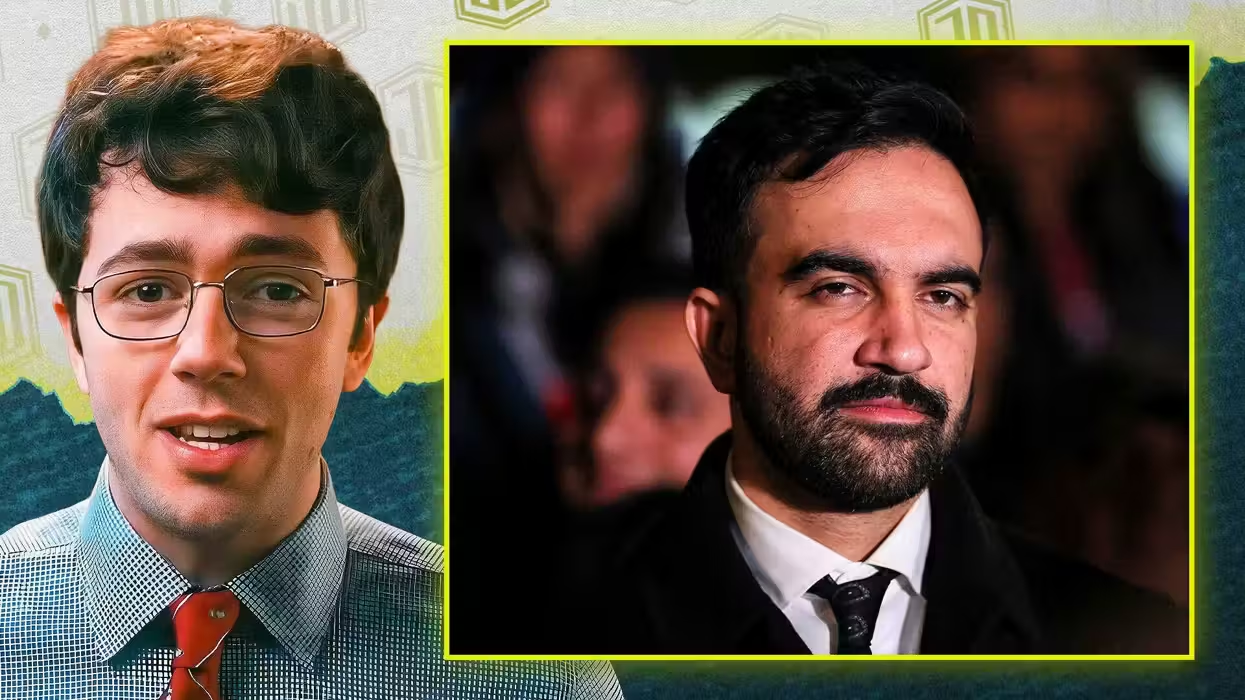
© 2025 Blaze Media LLC. All rights reserved.
Advice to Graduates Goes Viral Months After Commencement: 'Err in the Direction of Kindness
August 02, 2013
"What I regret most in my life are failures of kindness."
You might wonder why we're talking about a commencement speech months after college graduations. But the address given by author and professor George Saunders to the 2013 class at Syracuse University is going viral after being published in full by The New York Times on Wednesday, where its themes of regret and kindness seem to be hitting at the core of those who read it.
 George Saunders (Photo: David Shankbone via Wikimedia)
George Saunders (Photo: David Shankbone via Wikimedia)
In his speech, Saunders shared one of his deepest life regrets. It isn't being poor at times, working unsavory jobs (like being a "knuckle puller" at a slaughterhouse) or a slew of other decisions he wished he might have better considered before taking the leap (such as jumping into a river only to find hundreds of monkeys pooping in it).
One thing he does truly regret involves a girl named "Ellen" (as she was called in the speech) who came as a new student to his school in the seventh grade.
"Ellen was small, shy. She wore these blue cat’s-eye glasses that, at the time, only old ladies wore. When nervous, which was pretty much always, she had a habit of taking a strand of hair into her mouth and chewing on it," he said.
With these traits, Saunders said Ellen was "mostly ignored, occasionally teased."
"I could see this hurt her. I still remember the way she’d look after such an insult: eyes cast down, a little gut-kicked, as if, having just been reminded of her place in things, she was trying, as much as possible, to disappear," he continued, sharing a heartbreaking story that surely nearly everyone in the room could relate to seeing -- or experiencing first hand -- at some point in their lives.
Ellen's bit ends when her family moved.
"One day she was there, next day she wasn’t."
And although this might have been the end of the story for Ellen, the events surrounding her still bothers Saunders, he said.
"What I regret most in my life are failures of kindness," he continued.
His advice to graduates: "Try to be kinder."
But Saunders doesn't stop there. He acknowledges that this isn't always easy and delves into perhaps why:
Each of us is born with a series of built-in confusions that are probably somehow Darwinian. These are: (1) we’re central to the universe (that is, our personal story is the main and most interesting story, the only story, really); (2) we’re separate from the universe (there’s US and then, out there, all that other junk – dogs and swing-sets, and the State of Nebraska and low-hanging clouds and, you know, other people), and (3) we’re permanent (death is real, o.k., sure – for you, but not for me).Now, we don’t really believe these things – intellectually we know better – but we believe them viscerally, and live by them, and they cause us to prioritize our own needs over the needs of others, even though what we really want, in our hearts, is to be less selfish, more aware of what’s actually happening in the present moment, more open, and more loving.
Although achieving a goal of being kinder can be helped by education, meditation and spiritual tradition, Saunders said, some of it comes with age.
"We get our butts kicked by real life, and people come to our defense, and help us, and we learn that we’re not separate, and don’t want to be," Saunders explained. "We see people near and dear to us dropping away, and are gradually convinced that maybe we too will drop away (someday, a long time from now). Most people, as they age, become less selfish and more loving."
The "cure" to the "sickness" in us, which Saunders cites is selfishness, is to " seek out the most efficacious anti-selfishness medicines, energetically, for the rest of your life."
"Do all the other things, the ambitious things – travel, get rich, get famous, innovate, lead, fall in love, make and lose fortunes, swim naked in wild jungle rivers (after first having it tested for monkey poop) – but as you do, to the extent that you can, err in the direction of kindness," he said. "Do those things that incline you toward the big questions, and avoid the things that would reduce you and make you trivial. That luminous part of you that exists beyond personality – your soul, if you will – is as bright and shining as any that has ever been."
Be sure to read Saunders full speech on The New York Times -- it's worth it.
Like this story? Share it!
Featured image via Shutterstock.com.
--
[related]
Want to leave a tip?
We answer to you. Help keep our content free of advertisers and big tech censorship by leaving a tip today.
Want to join the conversation?
Already a subscriber?
more stories
Sign up for the Blaze newsletter
By signing up, you agree to our Privacy Policy and Terms of Use, and agree to receive content that may sometimes include advertisements. You may opt out at any time.
Related Content
© 2025 Blaze Media LLC. All rights reserved.
Get the stories that matter most delivered directly to your inbox.
By signing up, you agree to our Privacy Policy and Terms of Use, and agree to receive content that may sometimes include advertisements. You may opt out at any time.






